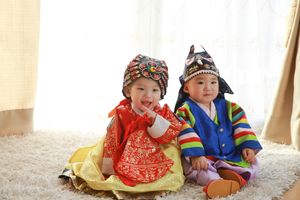Koreans Get Younger in Age System Change

In conversation with non-Koreans, Korean people have often had to explain two different ages. One was their “Korean age” - the age used normally within Korea. The other, their “international age,” was the same as is used in most countries around the world.
According to international age, as most people know, a baby is zero at birth and becomes one year old after exactly one year has passed. However, under the Korean age system, babies are one at birth and turn one year older at the new year. At its extreme, a baby born in late December could soon be two under the Korean age system, while their international age would be counted in days.
However, for Koreans, explaining the two ages will gradually become a thing of the past as their government recently passed laws to fully adopt the international age system. The government expects the change to reduce confusion and stop creating the impression that Korea is out-of-step with the world.
For individual Koreans, the most immediate effect is getting younger. Thirty-year-olds, for example, suddenly find themselves twenty-eight or twenty-nine again.
Despite the legal change, Korea will retain one age-related practice. Koreans will become eligible for school, the military, and buying alcohol or cigarettes together with the rest of their age group on January 1st of the appropriate year.
Sources: reuters.com, theguardian.com
For source links, see the article on ESLNewsStories.com
Audio
Hear the article spoken:
Useful Language
- Extreme (adj) - very large in degree
- A thing of the past (idiom) - something that doesn’t happen anymore
- out-of-step (adj) - different from the way others do things
- Despite (prep) - used to indicate that something might have prevented something else, but in fact it hasn’t
- Retain (v) - to keep
- Eligible (adj) - able to do or have something because of age or qualifications
- Appropriate (adj) - suitable, correct
Discussion
Discuss the following questions with your partner(s).
- What did you think about this story? Was there any surprising information?
- What is the best age to be, in your opinion?
- Have you changed as you have aged? What is something about you that has changed, and what is something that has stayed the same?
- Would you like to become a little younger, as many Koreans have recently?
- What is something about your country that you have to explain to foreigners? Is it easy or hard to explain?
- What ages bring big changes for people in your country? For example, when people can first drive a car.
- Does age matter? In what situations is age important?
- Do you fear getting older? What is positive about aging?
- What is something you wish would become “a thing of the past” in your country?
- Do you like it when systems and rules are similar around the world? For example, should the United States adopt the metric system, or does it not matter to you?